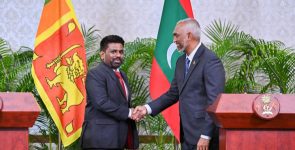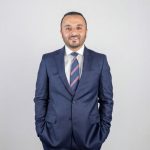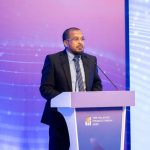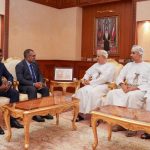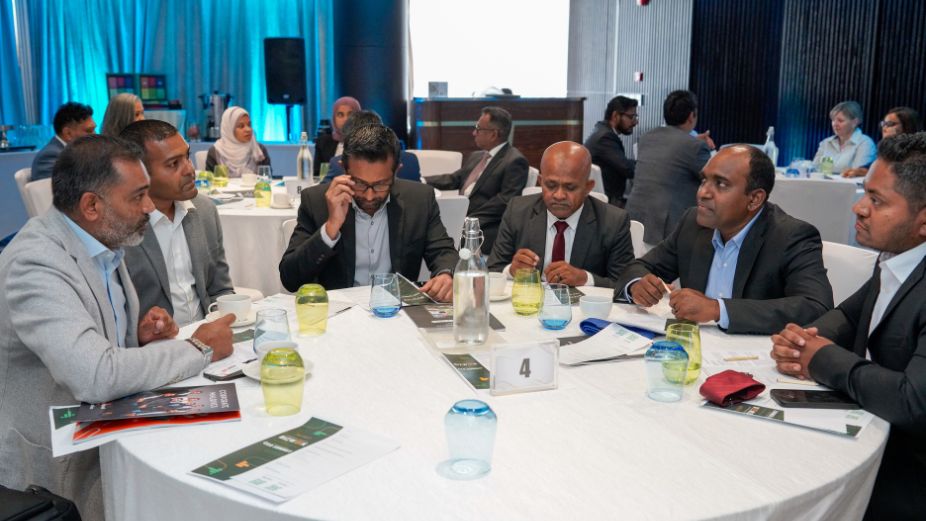
The Corporate Maldives CEO Summit 2025, held on 18 June at JEN Maldives Malé by Shangri-La, brought together leaders across sectors to engage in one of the country’s most grounded economic dialogues to date. Under the theme Building a Resilient Economy, the summit departed from convention by favouring honest, working discussions over rehearsed speeches.
A high-level panel anchored the event, followed by ten issue-specific roundtables where industry experts and decision-makers shared observations, concerns, and pathways for reform.
Panel Reflections: Infrastructure, Data, and Economic Leakage
The panel included Dr Abdulla Muththalib, Minister of Construction, Housing & Infrastructure; Ismail Rasheed, CEO and Managing Director of Dhiraagu; Mariyam Visam, Chief Commercial Officer at First National; Khalid Al-Hamadi, CEO and Managing Director of Ooredoo Maldives; and Moosa Nimal, Chief Business Officer at Bank of Maldives.
The conversation began with a reflection on the geographic challenges inherent to the Maldives’ dispersed island structure. Dr Muththalib outlined current government plans to address these inefficiencies, including the development of a 100 MW floating solar project near Malé and a broader vision for Ras Malé to operate as a renewable-powered, self-sustaining urban hub. He highlighted the need for greater private sector involvement in solar investment, particularly from the tourism sector, to meet the country’s environmental targets.
In the digital space, Ismail Rasheed emphasised the role of telecommunications as a foundational service that underpins national development. While the Maldives has achieved near-universal digital access, the sector continues to face risks related to data governance and system interoperability, which remain insufficiently addressed at a policy level.
Moosa Nimal shared insights from the banking sector, noting that the majority of transactions now occur through digital platforms. He stressed that the infrastructure to support data-driven financial services is already in place, but broader public awareness and digital literacy are needed to maximise its value. There was also recognition of the untapped potential in using anonymised data to improve financial inclusion and support local businesses.
Khalid Al-Hamadi discussed the shifting role of telecom companies, now evolving into full-service technology providers. He described how Ooredoo Maldives is already developing AI-driven solutions and engaging in regional tech partnerships, adding that the country’s existing infrastructure is capable of supporting more complex digital services.
From the perspective of capital markets, Mariyam Visam noted growing interest in sectors beyond tourism, including transport and logistics. However, she highlighted legal and institutional barriers that continue to limit access to capital. There was a call to strengthen public understanding of financial tools and promote more flexible regulatory frameworks.
The panel closed with a shared concern: while the Maldives generates significant economic value through tourism, a large proportion of that revenue exits the country. Participants stressed the need for reforms that promote reinvestment, strengthen domestic financial institutions, and create an enabling environment for capital retention.
Roundtable Outcomes: Working Through the Details
Following the panel, ten thematic roundtable sessions took place, tackling issues ranging from food systems and healthcare to technology, education, and urban development. These sessions were marked by candour and constructive debate.
The governance and policy reform table focused on the lack of consultation in drafting new laws, particularly around digital finance and emerging technologies. Participants advocated for public testing, stakeholder engagement, and better impact assessments before implementation.
At the education and workforce development table, concern was raised over the disconnect between academic qualifications and actual employment. Several participants called for structural curriculum reform to integrate vocational and STEM pathways, with international partnerships proposed to support technical training.
The creative industries & cultural economy table highlighted how little of Maldivian culture is monetised or protected within the formal economy. Weak intellectual property laws and a lack of platforms to commercialise creative work were cited as ongoing barriers. Participants proposed the integration of local storytelling and artistry into tourism offerings, along with stronger legal support for artists.
In the energy roundtable, the group addressed delays in executing renewable energy projects. While technical proposals exist, follow-through has been limited due to bureaucratic fragmentation and underutilised access to climate finance. Participants called for accelerated progress on regional waste-to-energy hubs and exploration of new technologies such as ocean energy.
Healthcare discussions centred on the critical gaps in service delivery outside the capital. There was consensus around expanding telemedicine, building diagnostic centres through public-private partnerships, and investing in human capital to fill workforce shortages in atolls.
Urban development & infrastructure table participants pointed to the absence of a long-term national plan. Infrastructure decisions, they argued, are often made in silos and lack legal continuity across administrations. Calls were made for a legally anchored urban development framework, with specific emphasis on decentralisation and remote work support.
Food security was redefined as a multidimensional issue. Participants argued for integrated systems linking local agriculture, tourism demand, and transport logistics. Strategies such as vertical farming and branded local produce were proposed to improve resilience and self-reliance.
The finance and investment table noted inconsistencies between tax records and loan applications, which complicate credit assessments. Proposals included more creative financing methods, including treating equity as collateral and introducing joint guarantee schemes.
Tourism leaders at their roundtable proposed diversified offerings beyond the beach, such as wellness, sports, post-operative rehabilitation, and cultural tourism. They pointed out that many guesthouses and councils are already piloting these models and called for a review of outdated regulatory frameworks and national branding strategies.
Finally, the technology and AI table identified digital trust as the most critical constraint. Without robust frameworks for data protection, secure digital identification, and clear governance, AI and other advanced technologies risk being underutilised. The group named healthcare as a strong starting point for responsible innovation but stressed the need for local tech talent and public awareness.
The CEO Summit 2025 stood apart for its format and tone, less spectacle, more substance. Rather than presenting polished visions, participants rolled up their sleeves and engaged with the uncomfortable realities and real-world limitations that define the Maldivian economy today.
Corporate Maldives is committed to sharing detailed summaries of each roundtable. As the country works to strengthen its economic foundations, the summit has created a space for collaboration, continuity, and informed decision-making grounded in lived experience.







